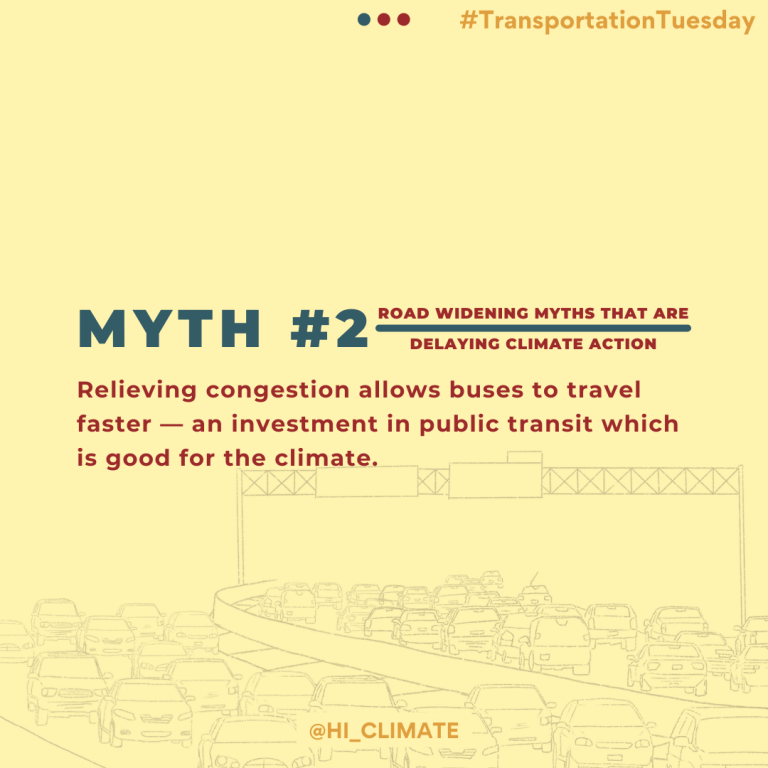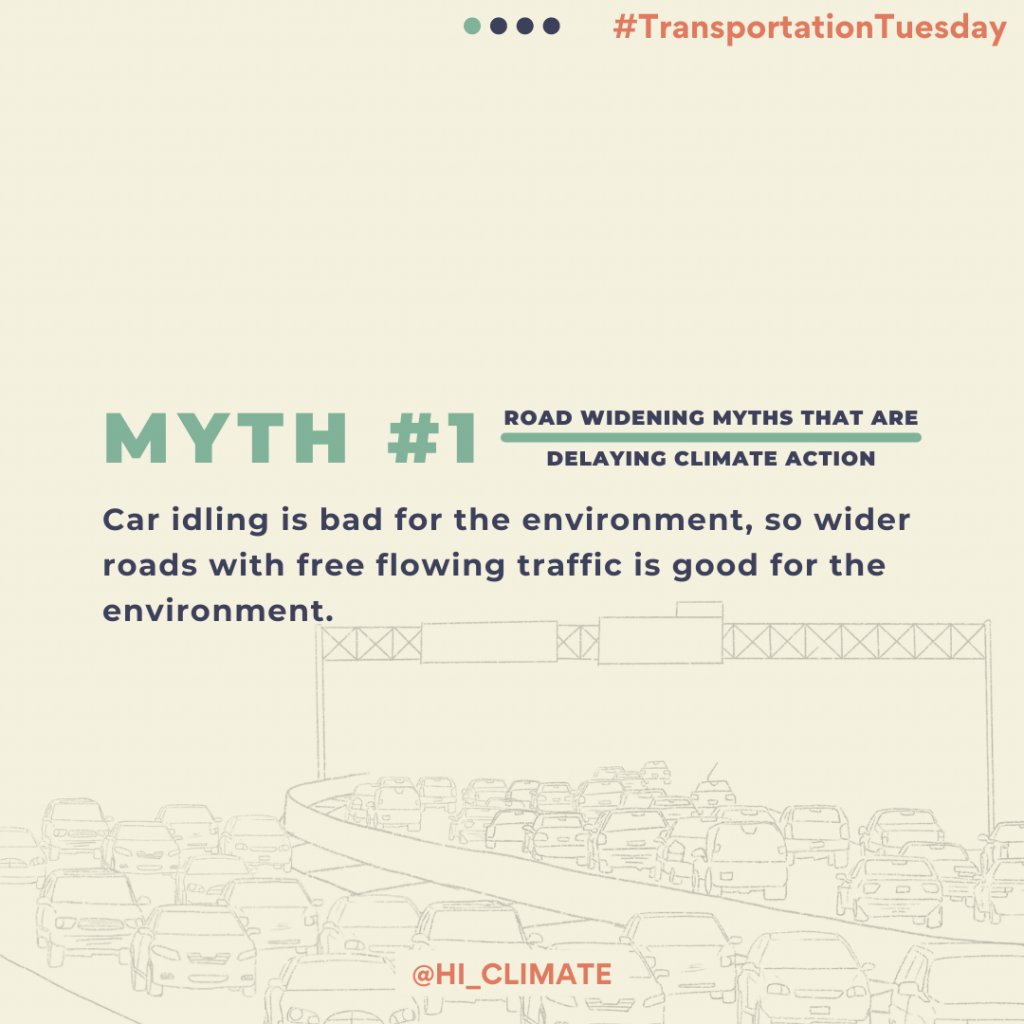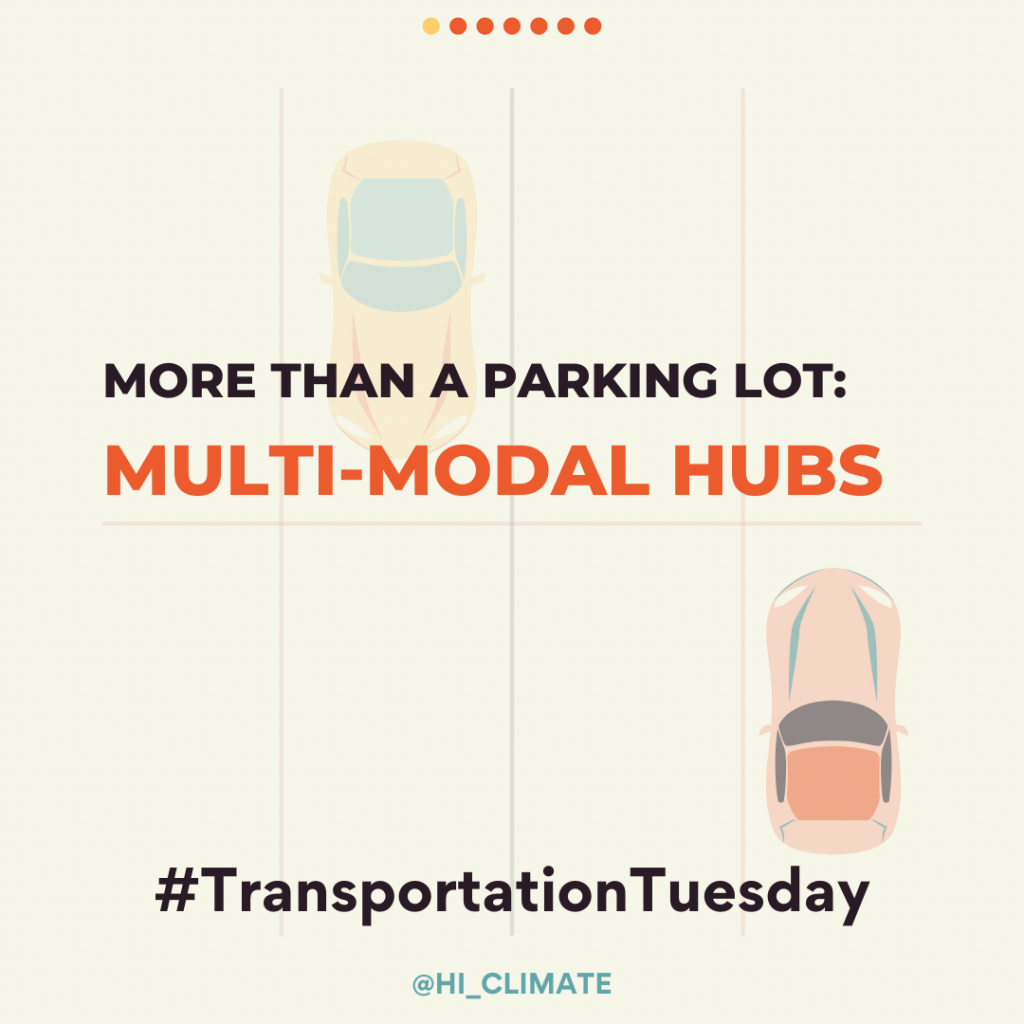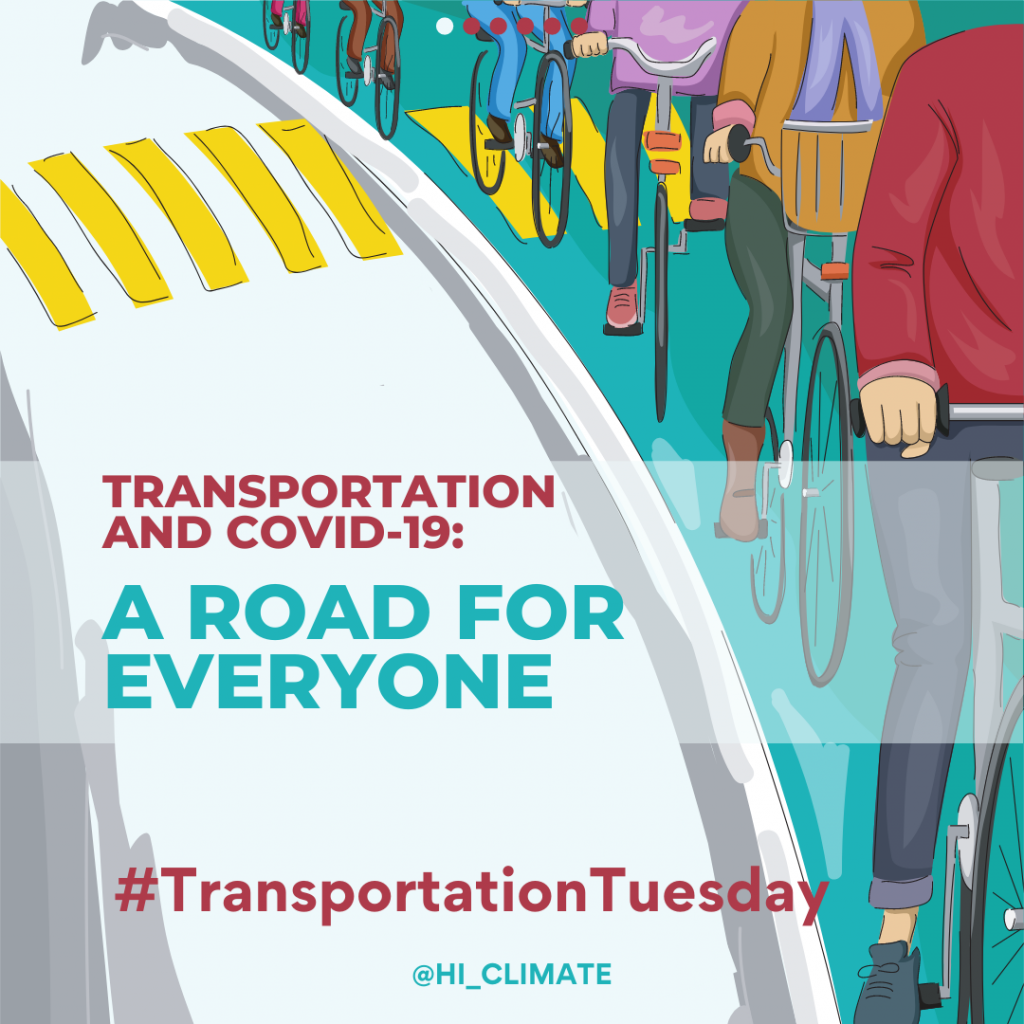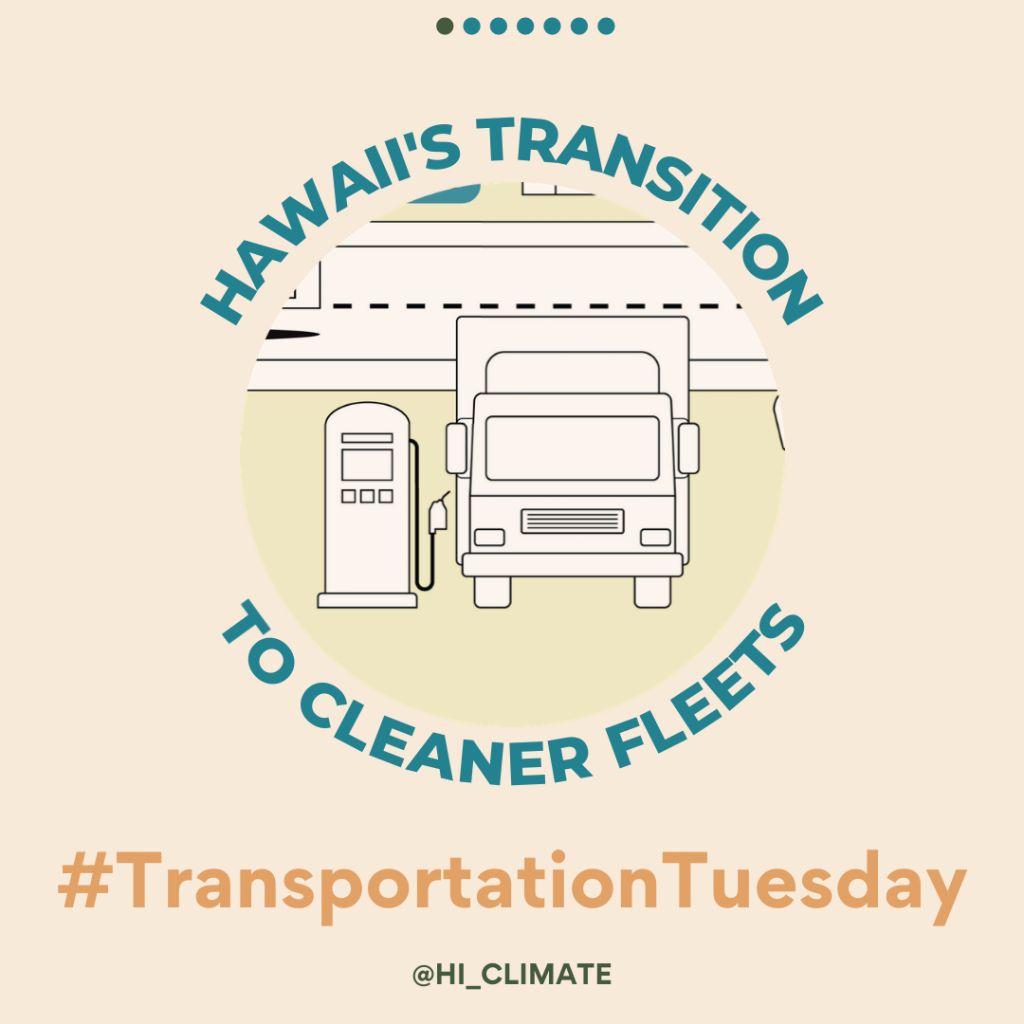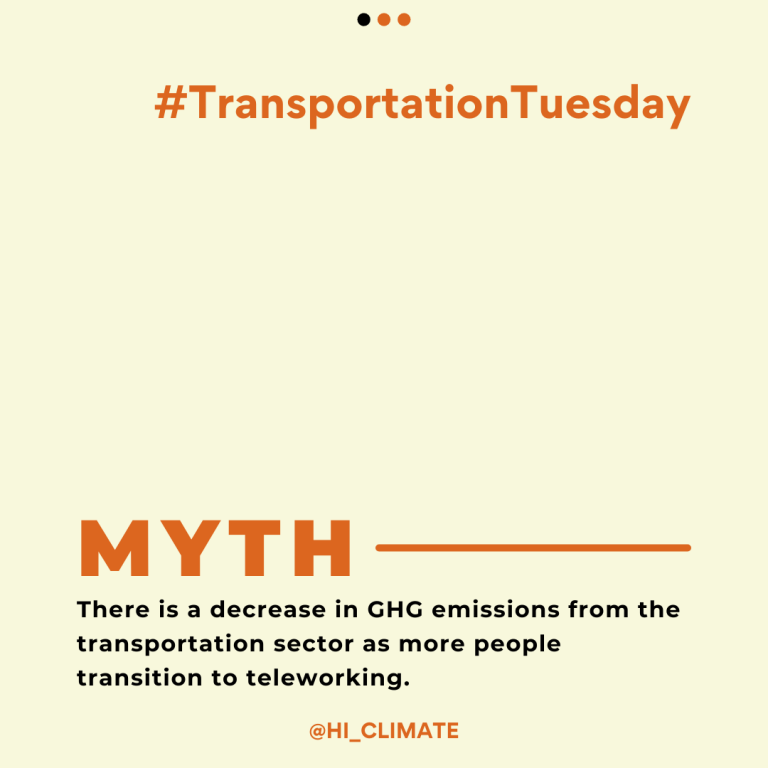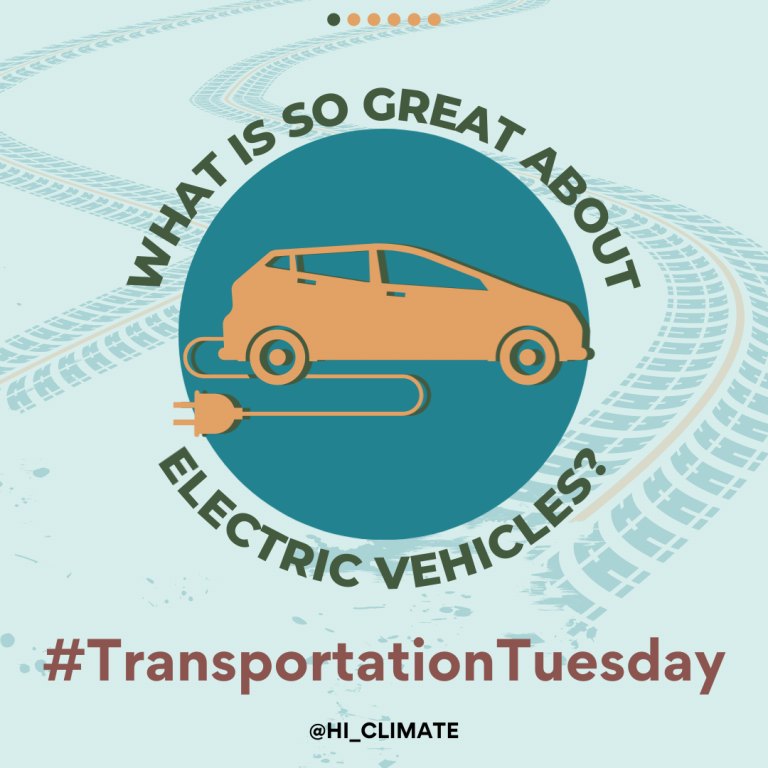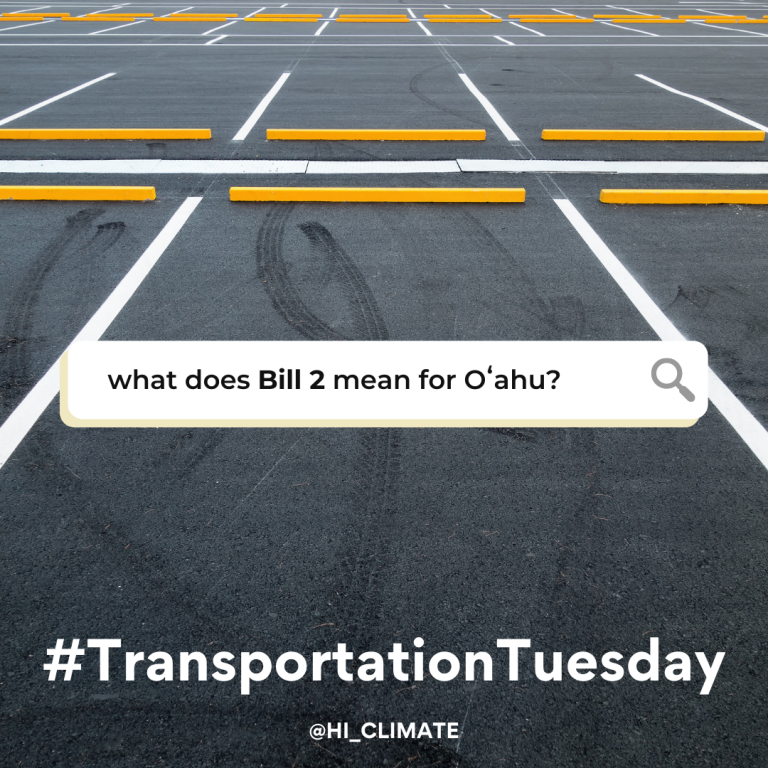- Home
- Critical Decade
- HI Climate Action
- HI Commission
- HI Resources
- HI Equity
- HI Events
Transportation and Climate Change

#TransportationTuesday Slide Decks
How we manage our transportation sector plays a major role in how we mitigate the climate change impacts. Click on any of our posts below as we break down transportation topics into bite sized information! Feel free to use them for educational purposes in your meetings, huis, and gatherings!
These slide decks were made by AmeriCorps VISTA Diana Lopera.
VISION ZERO: TRANSFORMING MOBILITY BY FOCUSING ON BECOMING RATHER THAN AVOIDING
Vision Zero, a commitment to eliminating traffic violence, contends that traffic deaths are unacceptable, avoidable, and preventable. Vision Zero aligns with the clean, equitable, and resilient goals of the Hawaiʻi Climate Commission. The reduction of vehicle miles travelled (VMT), investment in active transportation, and the associated reduction of transportation emissions benefit the health and safety of non-drivers while combating climate change. Vision Zero’s emphasis on pedestrian safety and acknowledgment of how identity informs vulnerability highlights the importance of equity in the transportation system. Finally, in order to create a truly resilient transportation system, the unique needs of different communities must be recognized and taken seriously. There must be a focus on tolerance over compliance, trading the rigid methods of “Enforcement” for the more flexible and positive methods of “Encouragement”.
Presenter CJ Johnson takes the Climate Ready Hawaiʻi VISTA cohort through the history that has enabled a car-centric world, key concepts of traffic violence, and how Vision Zero plans to bring equity to the forefront of our transportation system. He is the physical activity coordinator at the Hawaiʻi State Department of Health. CJ has extensive experience with Vision Zero in several states and roles ranging from agency planner to advocacy leader, and now as a public health program specialist.
This virtual presentation was made possible by the coordination done by AmeriCorps VISTA Parker Kushima.
MOBILITY HUBS: THE FUTURE OF MULTIMODAL TRANSPORTATION NETWORKS
Transportation networks are the backbone of modern society. They connect people to important destinations and are necessary to sustain every industry and many aspects of personal life. However, these rigid and car-centric systems planned decades ago often fail to accommodate the shift in transportation habits needed to achieve ambitious climate, energy, and equity goals. Mobility hubs have the potential to change transportation systems, and can lay the foundation for public transit, micromobility, and essential amenities to be more easily accessible to those who need them most.
On April 16th, 2021, the Hawaiʻi Interagency Council for Transit-Oriented Development heard from Jean Crowther and Derek Abe of Alta Planning + Design, who presented an introduction to mobility hubs to the Council, attending State and County agencies, and members of the general public. The presentation addressed the purpose and benefits of mobility hubs, and provided a closer look at the key elements that can comprise a mobility hub based on the scale, location, and intended outcomes. Transportation modes such as rail, bus, electric bikes and scooters, and rideshare programs can be mixed and matched with amenities such as public Wi-Fi, comfortable waiting areas, retail, and housing to best serve a host community’s needs. The presentation also included land use and siting considerations, a discussion of the role of mobility hubs in “building back better” to strengthen resilience, and implementation and policy strategies. The subsequent discussion allowed time for the Alta representatives to answer some questions before turning to the attending County agencies for a report on mobility hub projects across the State.
Jean Crowther is a planner and a Principal at Alta. She leads the company’s new mobility services nationally, which includes working on mobility hub studies in Oregon, Utah, North Carolina, South Carolina, Florida, and California.
Derek Abe is a transportation planner at Alta, and leads Complete Streets, New Mobility, and multimodal planning and design practice on the West Coast. He is based in Portland, but Oʻahu Grown!
This virtual presentation was made possible by the coordination done by AmeriCorps VISTA Parker Kushima.

